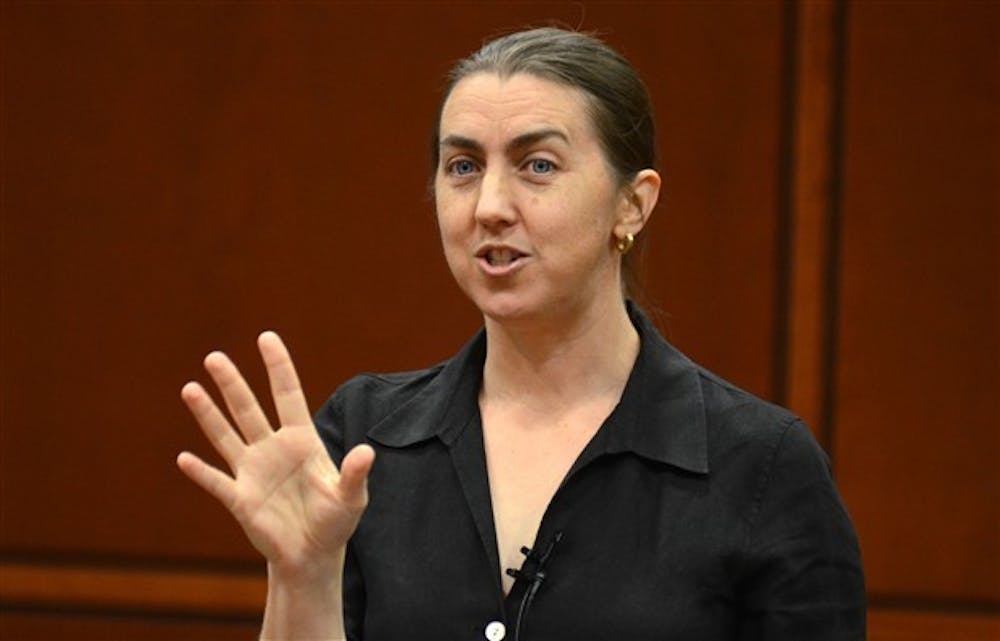Ann Cahill, professor of philosophy and Elon’s Distinguished Scholar 2011-12, spoke to students and faculty Tuesday about complex philosophical issues, equating the feeling after a miscarriage to the moment an individual expects to find another step after having already reached the top of a staircase. There is nothing to push back. This is what a miscarriage feels like to a woman in the midst of reconstructing her new identity as a pregnant woman, according to Cahill.
Cahill explained her ideas surrounding intersubjectivity. She discussed the idea that the interpersonal connection and identity of a person can be shaped and changed by another, especially in the case of a miscarriage.
Cahill defined intersubjectivity as the formation of one’s identity in response to another being. During the lecture, Cahill explained a person’s entire existence is based on intersubjectivity because, not only does each human being come from the body of another, but more importantly, each human being comes from a body that required care in order for him to exist.
“The model of the autonomous self-contained individual can make little sense of miscarriage,” Cahill said. “In fact, it can make little sense of pregnancy. To frame miscarriage as a loss of a thing that an individual person possessed misrepresents the intersubjective element of identity formation, the ‘being with’ that the relation of pregnancy necessarily entails.”
Cahill said people’s current perceptions of miscarriage as they relate to identity are not entirely accurate because people still see the mother and the fetus as two entities that are separate from one another. The specific example of miscarriage demonstrates her idea of intersubjectivity.
She said the model of miscarriage allows philosophers to frame miscarriage not as an individual losing something, but as the removal of part of that individual’s identity which was being formed in the presence of another being.
Cahill also spoke about intersubjectivity in terms of scholarship. She said many people imagine scholars – artists, composers, historians – as people who work in solitude, but she believes this is not the case.
“It’s not just that I, as a scholar, am dependent on the work of others (or) they rely on mine because that still keeps us defined as separate from each other, engaged in some sort of exchange that maintains our sort of individual existence,” Cahill said. “Intersubjectivity goes further than this. In terms of my existence as a scholar, it would entail recognition that I could not be a scholar without the prior actions of others, that my very existence as a scholar necessarily speaks of the work that others have done.”
Several students said the presentation was a little bit confusing, but students still expressed an appreciation for the lecture.
“Some parts went over my head, but just the whole thought of intersubjectivity in between miscarriages and the whole fetus and woman I thought was very interesting," said freshman Avery McStay.
McStay also learned during the presentation that Cahill identified as a feminist philosopher. She said she thought it was interesting to hear a woman define human interaction in those terms.


